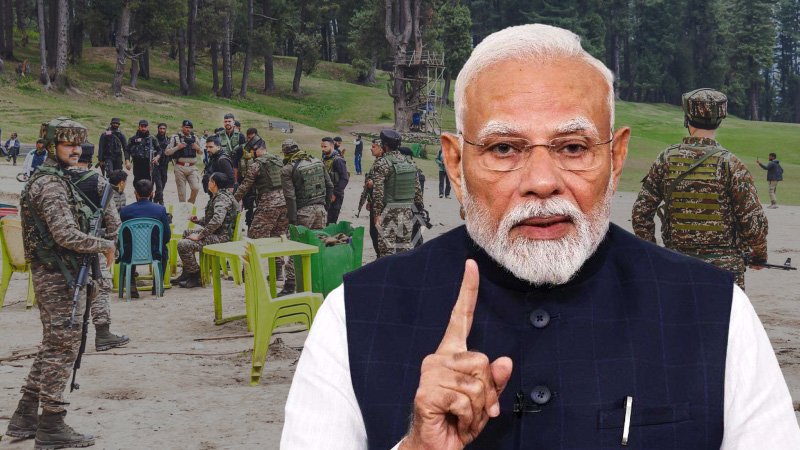- 26 killed in a deadly terror attack on tourists in Pahalgam, Jammu and Kashmir.
- India suspends the Indus Waters Treaty and revokes Pakistani visas, signaling heightened tensions.
- Pakistan responds with airspace closure and trade suspension, while both sides report LoC ceasefire violations.
On April 22, 2025, a terrorist attack on tourists in Jammu and Kashmir’s Pahalgam region resulted in the tragic loss of 26 lives. The attack has triggered severe diplomatic and military tensions between India and Pakistan. Both countries are taking aggressive measures.
Pakistan, in turn, has closed its airspace to Indian airlines and suspended all trade. Tensions rise along the Line of Control (LoC). The Indian Army has responded to ceasefire violations with effective retaliation.
Escalating Tensions Following Pahalgam Terror Attack: What’s at Stake
The terror attack in Pahalgam on April 22 has left India and Pakistan locked in a dangerous cycle of retaliatory actions. India swiftly moved to suspend the Indus Waters Treaty, a significant diplomatic tool. Additionally, India closed key border checkposts, signaling its frustration and anger. The decision to revoke Pakistani visas, except for official and long-term categories, highlights India’s intent to isolate Pakistan diplomatically. India also ramped up security measures along its borders.
Pakistan’s response has been equally stern, with the country’s Prime Minister Shehbaz Sharif warning that Pakistan’s military is ready to defend its sovereignty. The closure of airspace to Indian airlines and the suspension of all trade with India reflect a strategic attempt to counter India’s actions. Pakistan aims to maintain regional influence. The situation could potentially lead to further economic and military confrontations. Both countries are engaged in tit-for-tat measures.
On the ground, tensions are escalating along the Line of Control. Pakistan’s forces have been reported to violate the ceasefire agreement by opening fire in areas such as Tutmari Gali and Rampur sectors. India’s military has responded with retaliation, raising concerns of a broader conflict that could extend beyond the region. The situation is compounded by local security forces launching extensive operations to neutralize militants in Anantnag and nearby districts.
Amid the escalating conflict, Iran and Saudi Arabia have stepped in, offering to broker peace talks between the two nuclear-armed nations. However, with both sides committed to their stances, a diplomatic breakthrough seems uncertain. The NIA now leads the investigation. Meanwhile, the international community watches closely to see if this will lead to a more severe escalation or diplomatic resolution.
As both nations stand on the brink of escalation, the situation remains precarious. While diplomatic mediation efforts are underway, the risk of further military confrontations is very real.
“The terrorist attack in Pahalgam reflects the frustration of those who patronize terrorism. It shows their cowardice.” — PM Narendra Modi



